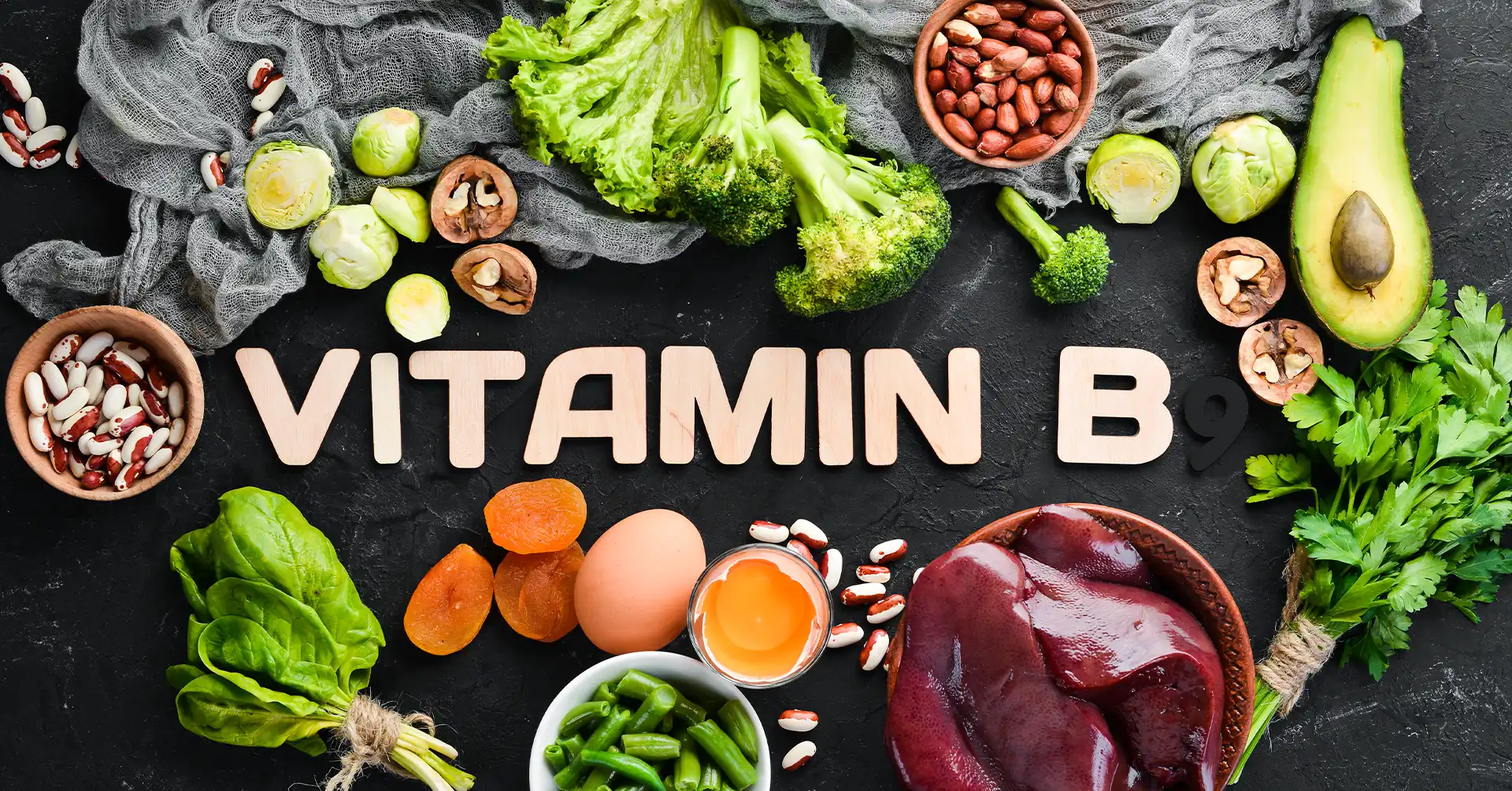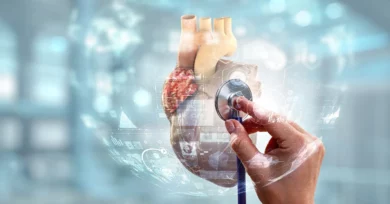Vitamins play a very important role in maintaining our health and well-being. One such Vitamin is B Vitamins. There are many types of Vitamin B that will help in maintaining a good metabolism as well as will help in keeping the body well. So, in this article, we will be discussing the different types of Vitamins and their functions, along with many other fun facts. So, without any delay, let us get started!
What are the B Vitamins?
Before we tell you more in detail about the B vitamins, it is important to know what they are. So, there are eight types of B vitamins, and they play a very important role in bodily functions and help in regulating some of the most important functions in the body. They help with many important functions like producing blood cells, creating energy from food, and also to maintain healthy skin.
Eight B Vitamins:
The eight b vitamins are together called vitamin B complex, and the vitamin B foods help in many ways for the effective functioning of the body. So, the eight types of B vitamins are:
- thiamin
- riboflavin
- niacin
- pantothenic acid
- vitamin B-6
- biotin
- folate
- vitamin B-12
Also, a fun fact is that you do not have to look at different foods to find all these eight B vitamins; these eight vitamins are often present together in the same foods. Hence, you can eat b vitamin foods to get all the nutrition benefits of these eight b vitamins. People can also opt for supplements if they cannot meet their daily needs for these Vitamins.
Now that you all have got a good understanding of the b-vitamins. In the next section of the article, we will be discussing in detail the sources of all these eight b vitamins and each of these vitamins in detail. So, head to the next article to know more.
Sources:
As we mentioned, eight b vitamins are essential for bodily functions, and all these vitamins are needed. If not, their deficiency can cause severe disorders. However, when you take all these vitamins in the right proportion, you will be having the right bodily functions. To get these vitamins in the right proportion, it is important to know the sources of each of these Vitamins. So, let’s decode the sources together.
Thiamin (vitamin B-1):
High amounts of thiamine are mainly found in the brain, kidney, and liver. The body needs thiamine to perform the following functions:
- To produce fatty acids
- Synthesize certain hormones
- To create certain neurotransmitters
- To break down sugar, which is carbohydrate molecules, into food.
Some of the sources of thiamine are:
- mussels
- acorn squash
- legumes, such as black beans and soybeans
- nuts
- seeds
- whole grains and fortified bread, cereal, pasta, and rice
- pork
Some of the Symptoms of Thiamine Deficiency are:
- heart problems
- tingling and numbness in the hands and feet
- loss of muscle mass
- poor reflexes
- weight loss
- little or no appetite
- memory problems or confusion
It is also very important not to depend on alcohol as it will lead to thiamine deficiency.
Riboflavin (vitamin B-2):
Riboflavin is the second vitamin, and the body needs Riboflavin for:
- To convert tryptophan into niacin (vitamin B-3)
- To convert vitamin B-6 into a coenzyme that the body needs
- To help in breaking down fats, drugs, and steroid hormones
- For energy production
Some of the sources of Riboflavin are:
- oatmeal
- yogurt and milk
- mushrooms
- almonds
- organ meats
- fortified breakfast cereals
Some of the Symptoms of Riboflavin deficiency are:
- swelling of the mouth and throat
- swollen, cracked lips
- hair loss
- red, itchy eyes
- skin disorders
- sores at the corners of the mouth
Having riboflavin disorders is rare, and people who have it will mostly have thyroid problems or other such conditions. The ones who have severe symptoms will be facing conditions such as anemia and cataracts
Niacin (vitamin B-3):
Niacin is a very important b vitamin as it is a part of more than 400 different enzyme reactions in the body. It is the highest of all the vitamin-derived coenzymes. The body needs Niacin for:
- communication among cells
- expression of DNA in cells
- changing the energy in carbohydrates, fats, and proteins into a form the body can use
- metabolic processes in the body’s cells
Some of the sources of Niacin are:
- poultry and fish
- peanut butter
- beef
- Fortified grain products
- Legumes
Some of the symptoms of Niacin deficiency are:
- vomiting, diarrhea, or constipation
- headache
- fatigue
- depression
- brown discoloration on skin exposed to sunlight
- patches of skin with a rough appearance
- a bright red tongue
People who have severe niacin deficiency can face pellagra, and all the aforementioned symptoms prevail in the condition
Pantothenic acid (vitamin B-5):
Vitamin B-5 is needed by the body for creating new coenzymes, fats and proteins. This vitamin is carried by the RBCs in the body for utilizing the nutrient is a variety of processes for energy as well as metabolism.
Some of the sources of Pantothenic acid are:
- chicken
- tuna
- avocados
- fortified breakfast cereals
- beef liver
- shiitake mushrooms
- sunflower seeds
Some of the symptoms of Pantothenic acid deficiency are:
- restlessness and poor sleep
- a lack of appetite
- numbness and burning of the hands and feet
- headache
- irritability
Vitamin b-5 deficiency is rare, and its severe deficiency will lead to malnutrition.
Vitamin B-6:
It plays a very crucial role in more than 100 enzyme reactions. It is needed by the body for :
- For brain development
- For immune function
- Amino acid metabolism
- For breaking down carbohydrates and fats
Some of the sources of Vitamin B 6 are:
- poultry
- potatoes
- fortified cereals
- organ meats
- chickpeas
- tuna
- salmon
Symptoms of Vitamin B 6 deficiency are:
- Vitamin B 6 deficiency will lead to the following:
- swollen tongue
- weakened immune system
- confusion
- depression
- anemia
- scaling on the lips
- cracks at the corners of the mouth
Biotin (vitamin B-7):
You must have heard about Biotin being added to many supplements for hair, nail, and skin. Biotin is primarily needed by the body for:
- Regulation of DNA
- Effective communication among the cells in the body
- For breaking down fats, protein, and carbohydrates
- Some of the sources of Biotin are:
- pork
- beef
- sunflower seeds
- organ meats
- eggs
- salmon
Some of the symptoms of Biotin deficiency are:
- depression
- fatigue
- thinning of the hair
- a scaly rash around the eyes, nose, and mouth
- brittle nails
Folate (vitamin B-9):
Folic acid is the natural form of Folate, and it is present in supplementary foods as well as fortified foods. The body primarily needs folate for:
- metabolism of vitamins
- metabolism of amino acids
- proper cell division
- DNA replication
Some of the sources of Folate are:
- eggs
- beans
- nuts
- dark green leafy vegetables
- beef liver
- avocado
- papaya
- orange juice
Some of the symptoms of folate deficiency are:
- sores on the tongue or in the mouth
- skin, hair, or nail changes
- weakness
- headache
- heart palpitations
- irritability
The addition of folic acid in grain products has made folate deficiency very rare. However, some of the symptoms of its deficiency are mentioned above.
Vitamin B-12:
This is the B- Vitamin, which contains the mineral cobalt, and it is also known as “cobalamin.” Vitamin B 12 is primarily needed by the body for:
- Brain and neurological function
- fat and protein metabolism
- creating new red blood cells
- DNA synthesis
Some of the sources of Vitamin B12 are:
- beef
- milk and yogurt
- clams
- beef liver
- salmon
Some of the symptoms of Vitamin B12 deficiency are:
- numbness and tingling in the hands and feet
- memory problems
- depression
- fatigue
- weight loss
- constipation
- loss of appetite
Folks, these are all the B vitamins, along with their sources and deficiency symptoms. If you are unable to consume these sources, then you can fulfill the need for this food by consuming supplements. Researchers say that people who have deficiency will benefit from these supplements, and a high dose of it complex will help them satisfy the need for all these eight B vitamins.
Conclusion:
These are some of the most important B vitamins that one needs to consume to maintain a healthy body. The sources of all these vitamins are mentioned briefly in the article, so feel free to refer to them to consume adequate food for each of the vitamin needs. That’s all, folks. I hope the article will help you in getting all the information you need.
Also Read:






